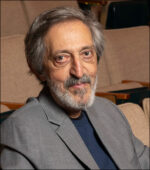Alan Turing presented the world of mathematical theory with the question: “Can machines think?” Which, according to some, allowed for the world of software as we know it to be born.
His contributions go beyond the world of computing—he was also a cryptologist, mathematician and logician—but the computer scientists of the world will gather this year to celebrate what would have been his 100th birthday, had he not died at 41 in 1954.
Turing’s birthday—June 23, 1912—will be marked by worldwide celebrations. The Association for Computing Machinery is hosting its Turing Centenary Celebration on June 15 and 16 at the Palace Hotel in San Francisco. The program includes individual talks by past A.M. Turing Award winners, as well as some panel events on Alan Turing: the individual, his work and the future of networked computing.
The Turing Award, first given in 1966, is handed out each year to one or more individuals for their contributions of a technical nature to the computing community. The award also includes a US$250,000 prize.
In speaking with past winners of the Turing Award and others who have used his research as a starting point for their own, it is clear that each has been touched by Turing’s research in a different way.
Stephen Wolfram, scientist, inventor, author and business leader, said Turing’s work on universal computation is perhaps the most important work in the field of computing over the last 100 years. Wolfram is the creator of Mathematica, an application for complex computations; the author of “A New Kind of Science”; the creator of Wolfram Alpha, a free-form, natural-language search engine; and the founder and CEO of Wolfram Research.
Science, Wolfram said, is built on layers, so it is hard to trace a single innovation back to the work of a single thought leader. But he said that Turing’s work can be shown to have influenced modern thought on a variety of computing topics. Turing, he said, motivated many to push past what was known.
Wolfram said Turing was the first to clearly understand and explain that software should be possible, that an individual machine could be programmed to do more than one computation.
If Turing had lived, he said, he probably would have discovered the same things Wolfram himself had “a lot of fun discovering.” Universal computation was not always thought of as a serious concept, but Wolfram said he has “taken it more seriously as a foundation, and a large fraction of what [he has] done relies on [the concept].”
This year’s winner, Judea Pearl, a professor of computer science at UCLA, will speak on a panel about human and machine intelligence at the Turing Centenary Celebration. Pearl agreed with Wolfram, adding that the belief that computers can think did not directly influence any one particular innovative computer or software concept; instead, it spawned other technology.
Artificial Intelligence is a very rich field, according to Pearl, adding that it is just in its infancy. There is language translation and speech recognition, but beyond that, AI is not fully developed, in his mind. His work is motivated by his belief that machines can be programmed to think autonomously, so that a computer can “talk” about its own wishes and decisions.
Pearl does believe that “We [in the field of computer science] have come a long way,” but also believed that “we still have a lot to accomplish.” The fact that the industry is reviewing the Turing test of universal computation, and understanding that it is not the end of the road, is a sign that the industry understands that Turing’s legacy is one of constant discovery, he said.
Joseph Sifakis, a winner of the Turing Award in 2007, a professor at École Polytechnique Fédérale de Lausanne in Switzerland, and a panelist on the “Practice in Research and Research in Practice” systems panel at the Turing Centenary, believed that Turing’s legacy goes beyond AI and programming machines to “think.” For him, it is creating machines that “can cope with hazards.”
Hazards, Sifakis said, can be anything from a hack into the system, an environmental disturbance or even a hardware issue—any “unknown threat.” Solving this problem, he said, is crucial for the development of embedded systems, which, he explained, break with traditional computing systems such as desktops and servers.
“Embedded systems must jointly meet technical requirements such as reactivity, that is, responding within a known and bounded delay. Systems must also display autonomy, that is, providing continuous service without human intervention and dependability that is invulnerability to threats including attacks, hardware failures, and software execution errors,” Sifakis explained.
Further, he believed, “In the near future, another anticipated, important landmark will be the advent of the Internet of Things as the result of the convergence between embedded technologies and the Internet (with every object corresponding to a different virtualization, an idea popularized at the end of the 1990s. It is thought that the concept will come to pass once RFID devices have matured). The idea is to use Internet technologies to integrate services provided by hundreds of billions of embedded systems. This will require an upgrade of the Internet infrastructure to make it more secure, safer and reactive.”
All of these thought leaders have been influenced by Turing, as have countless others. Their research, the research of their colleagues, and the research of others in the field of computer science will continue to influence the way systems are created and the way the software industry evolves.
As Wolfram said, it is not in knowing where Turing fits exactly in the puzzle of the birth of the software industry, it is in understanding where the industry has to go beyond his research in order to evolve and, ultimately, survive.





